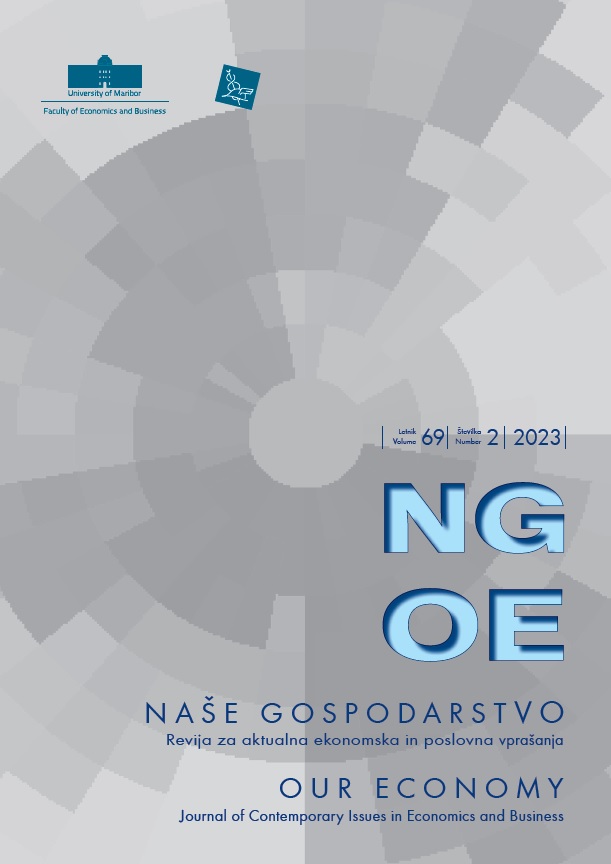Tourism Demand in Tunisia: A VECM Approach
Keywords:
Tourism industry, Tourism demand, VECM, Co-integration, TunisiaAbstract
This research aimed to study the determinants of tourism demand in Tunisia from 1995 to 2019 with four independent variables: gross domestic product, consumer price index, the real exchange rate, and air transport passengers carried. The research employed the Unit root test, Co-integration test, and Vector Error Correction model (VECM) to examine the variables' short- and long-run relationship dynamics. The results show that co-integrating relations exist among the variables; all independent variables negatively impact tourism demand except Air transport. Depending on the results obtained, policymakers should be aware of the negative effect of the country's political instability on the extent of external tourism demand. In this sense, the government must restore political stability to encourage tourists to visit Tunisia. Future studies should consider factors such as the economy's trade openness and oil prices.
Downloads
References
Adeola, O., Boso, N., & Evans, O. (2018). Drivers of international tourism demand in Africa. Business Economics, 53(1), 25–36. DOI: https://doi.org/10.1057/S11369-017-0051-3
Baghirov, A., & Sarkhanov, T. (2023). The Influence of Incoming Tourists and Consumer Price Index on Tourism Receipts. African Journal of Hospitality, Tourism and Leisure, 12(1), 16–30. DOI: https://doi.org/10.46222/ajhtl.19770720.351
Balsalobre-Lorente, D., Driha, O. M., Bekun, F. V., & Adedoyin, F. F. (2021). The asymmetric impact of air transport on economic growth in Spain: fresh evidence from the tourism-led growth hypothesis. Current Issues in Tourism, 24(4), 503–519. DOI: https://doi.org/10.1080/13683500.2020.1720624
Bozkurt, C. (2014). Money, Inflation and Growth Relationship: The Turkish Case. International Journal of Economics and Financial Issues, 4(2), 309–322. Retrieved from https://www.econjournals.com/index.php/ijefi/article/view/750
Chi, J. (2020). The impact of third-country exchange rate risk on international air travel flows The case of Korean outbound tourism demand. Transport Policy, 89, 66–78. DOI: https://doi.org/10.1016/J.TRANPOL.2020.01.012
Doerr, L., Dorn, F., Gaebler, S., & Potrafke, N. (2020). How new airport infrastructure promotes tourism: evidence from a synthetic control approach in German regions. Regional Studies, 54(10), 1402–1412. DOI: https://doi.org/10.1080/00343404.2020.1714022
Göçer, İ., Görmüş, Ş., & Göçer, S. (2010). The socio-economic determinant of tourism demand in Turkey: A panel data approach. International Research Journal of Finance and Economics, 55, 88-99. Retrieved from http://www.eurojournals.com/finance.htm
Hącia, E. (2019). The role of tourism in the development of the city. Transportation Research Procedia, 39(2), 104–111. https://doi.org/10.1016/j.trpro.2019.06.012
Ivanovski, Z., Milenkovski, A., & Narasanov, Z. (2018). Time Series Forecasting Using a Moving Average Model for Extrapolation of Number of Tourists. UTMS Journal of Economics, 9(2), 121–132.
Jin, X. (Cathy), Bao, J., & Qu, M. (2021). Can tourism be a policy tool to moderate the trade balance? Annals of Tourism Research, 86. DOI:https://doi.org/10.1016/J.ANNALS.2020.102946
Khoshnevis Yazdi, S., & Khanalizadeh, B. (2016). Tourism demand: a panel data approach., 20(8), 787–800. DOI: https://doi.org/10.1080/13683500.2016.1170772
Martins, L. F., Gan, Y., & Ferreira-Lopes, A. (2017). An empirical analysis of the influence of macroeconomic determinants on World tourism demand. Tourism Management, 61, 248–260. DOI: https://doi.org/10.1016/J.TOURMAN.2017.01.008
Ongan, S., Işik, C., & Özdemir, D. (2017). The Effects of Real Exchange Rates and Income on International Tourism Demand for the USA from Some European Union Countries. Economies 2017, 5(4), 51. DOI: https://doi.org/10.3390/ECONOMIES5040051
Pavlic, I., Svilokos, T., & Tolic, M. S. (2015). Tourism, Real Effective Exchange Rate, and Economic Growth: Empirical Evidence for Croatia. International Journal of Tourism Research, 17(3), 282–291. DOI: https://doi.org/10.1002/JTR.1986
Rafiei, F., & Abbaspoor, N. (2021). The impact of exchange rate on domestic tourism demand of Iran. Anatolia, 33(3), 451-462. DOI: 10.1080/13032917.2021.1964553
Suhel, S., & Bashir, A. (2018). The role of tourism toward economic growth in the local economy. Economic Journal of Emerging Markets, 10(1), 32–39. DOI: https://doi.org/10.20885/EJEM.VOL10.ISS1.ART4
Downloads
Published
Issue
Section
License
Copyright (c) 2023 Djamal Dekkiche

This work is licensed under a Creative Commons Attribution-NonCommercial-NoDerivatives 4.0 International License.
